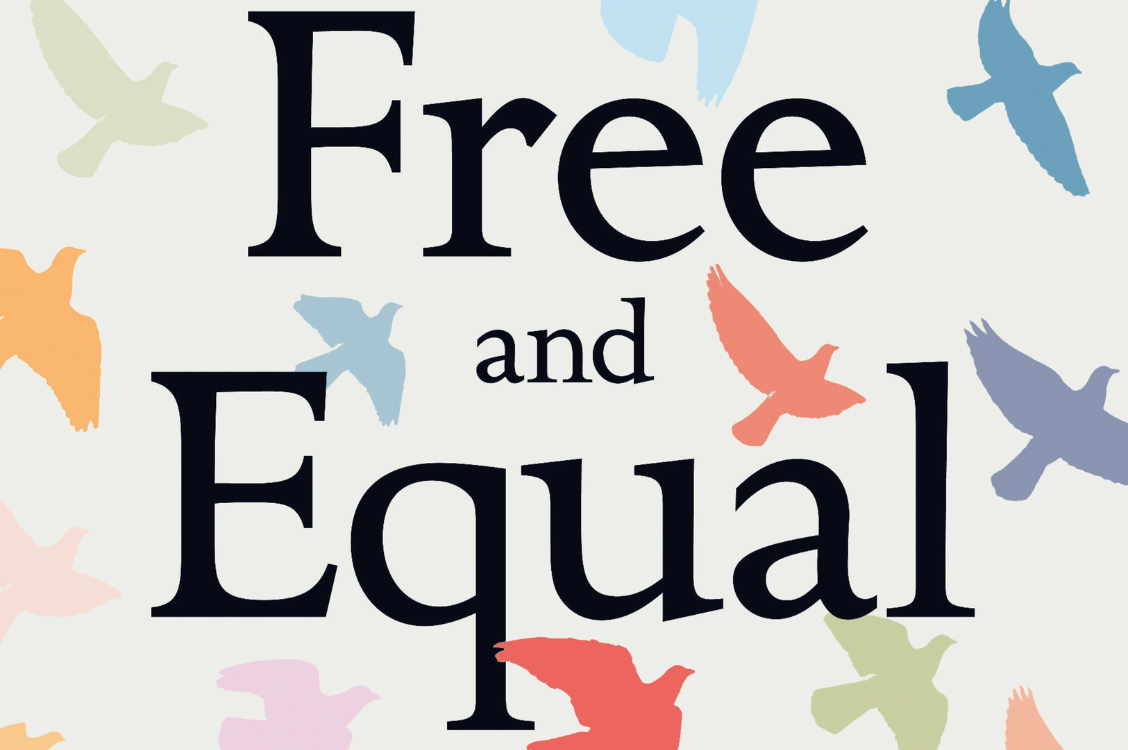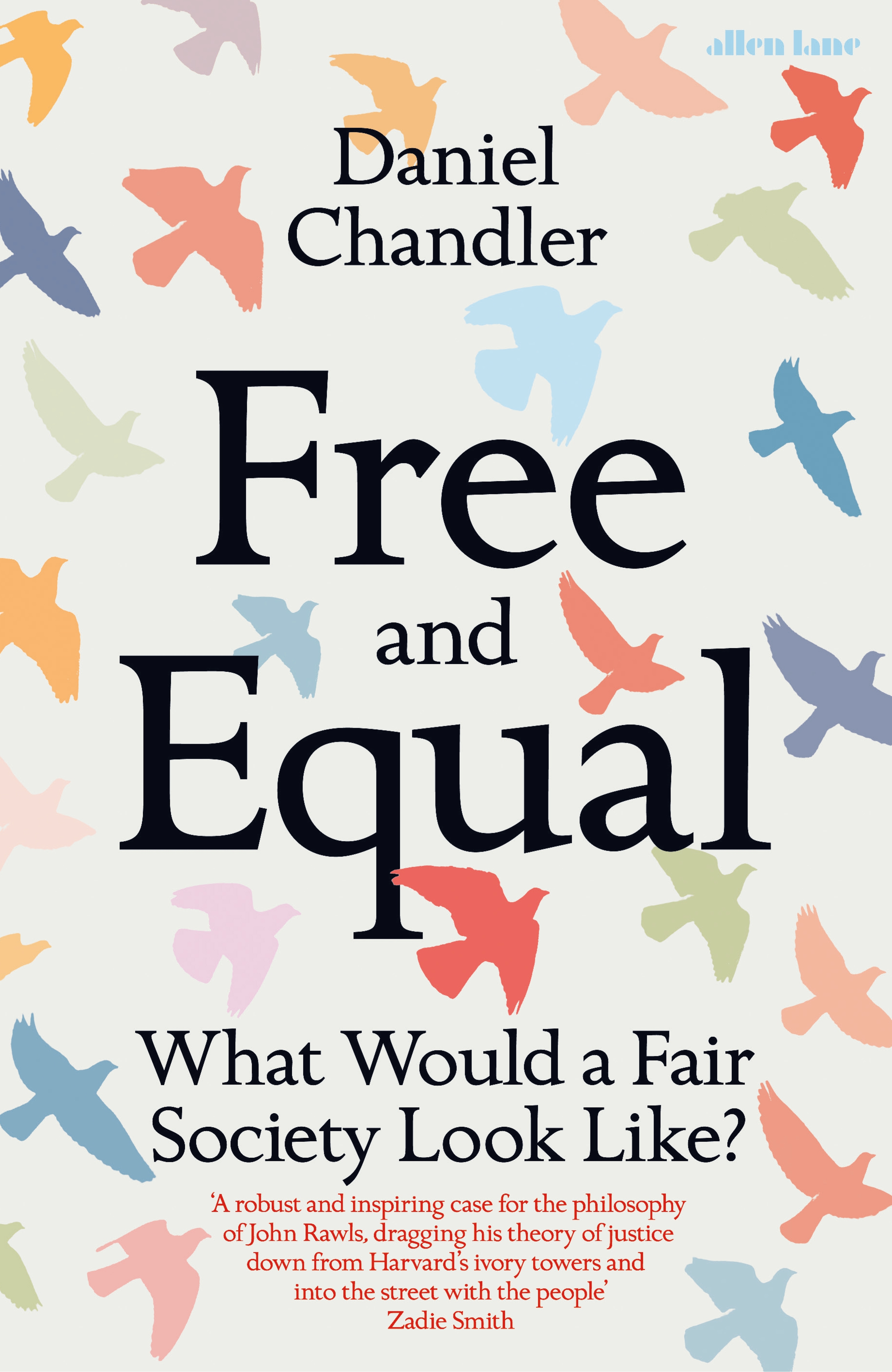
- Free Article: No
- Contents Category: Society
- Review Article: Yes
- Article Title: Waiting for the new
- Article Subtitle: Extending the legacy of John Rawls
- Online Only: No
- Custom Highlight Text:
Only rarely does a book of political philosophy inspire a media commotion. Well, at least a small stir – glowing reviews in leading British newspapers, BBC interviews, a speech at the Royal Academy of Arts, praise from the archbishop of Canterbury. Daniel Chandler, LSE economist and philosopher, is the thinker of the moment.
- Featured Image (400px * 250px):

- Alt Tag (Featured Image): Glyn Davis reviews 'Free and Equal: What would a fair society look like?' by Daniel Chandler
- Book 1 Title: Free and Equal
- Book 1 Subtitle: What would a fair society look like?
- Book 1 Biblio: Allen Lane, $55 hb, 416 pp
- Book 1 Cover Small (400 x 600):

- Book 1 Cover (800 x 1200):

From this starting point, Rawls offered his vision for a liberal democratic society. It would remain capitalist in respecting private property and entrepreneurship, and pluralist in assuming that many different views and values can be accommodated when personal rights are protected in a constitution and supported through the rule of law. From this foundation Rawls suggests that policy must deliver the best result possible for those least advantaged. The related ‘just savings’ principle has an ecological edge – each generation must be careful not to leave a degraded world for those that follow.
The first half of Free and Equal explores in detail the thinking which made Rawls one of the most widely read philosophers of his time. Chandler’s exposition is exemplary, expounding the interlocking principles proposed by Rawls as his work developed over several decades.
Chandler concedes that Rawls can be quite abstract and leave readers to wonder whether his position offers much practical application. An adviser who left Oxford to work for Labour leader Ed Miliband once observed about his new job that ‘there was no day where a bit of Rawls helped me’. Chandler is keen to demonstrate otherwise. After outlining the key tenets of the Rawlsian position, and dispensing with some common criticisms, Free and Equal turns to a series of policy questions. This second half of the book argues the possibility of a fairer society inspired by Rawlsian logic.
Chandler begins with personal freedoms and the case for liberal toleration. Free speech should be protected, provided it does not restrict other freedoms, but misinformation must be called out. Like the gentle Harvard scholar that he was, Rawls considered a spirit of civility, a willingness to listen to others, as central to communal life. In a British context, Chandler wants personal freedoms enumerated in a written constitution and protected by the courts. Yet law is not sufficient. Liberalism must be taught so that citizens understand the institutions which protect our right to disagree – the ‘overlapping consensus’ necessary to sustain any viable society.
Education takes Chandler to his discussion of the difference principle, the idea that inequality is only legitimate when it benefits those least well off in society. He argues for strengthening humanities and social sciences in schools so that citizens develop political capabilities. Chandler can see no case for the gross differences in education quality available to British children. Affluent schools should lose all public subsidy – if they are not abolished altogether – since, in the words of economic historian R.H. Tawney, true equality ‘depends not only upon an open road but upon an equal start’.
A lifelong learning budget for each citizen could lift skills and wages. Yet Chandler is doubtful about universal free tertiary education; a scholarship system for the poorest in society makes sense, but those who can pay should, through income contingent loans.
The need for fairness animates chapters on freedom and democracy. A Rawlsian society needs free and open elections, so Chandler proposes Australian-style preferential ballots for Britain, but does not engage with the merits of compulsory voting. He is keen to experiment with participatory budgeting and random selection for citizen assemblies to consider significant policy choices. Since it is unreasonable that vested interests can dominate donations to political parties, only public funding is preferred, perhaps with a ‘democracy voucher’ that each citizen can direct annually to the party they value. Fairness requires public investment in media, because in a democracy news is a public good. Again, vouchers are suggested, in this case to any media organisation which commits to accurate and non-partisan reporting.
Within this institutional framework to sustain Rawlsian values, Chandler can turn to policies designed for equality of opportunity. The tax system must be skewed toward those who need support, perhaps through a universal basic income. Employment laws should guarantee no systematic inequalities linked to ethnicity or gender. Workplace democracy provides a chance to share decision making and more equitable rewards. Chandler would encourage trade unions to rebalance the power of employers, to strengthen job security, and to introduce active labour programs for those who lose the dignity and comfort of regular employment.
As Chandler repeatedly reminds readers, a just society requires policy biased toward shared prosperity. This sometimes takes Chandler beyond anything Rawls argued. This is legitimate – political philosophy must speak to circumstances beyond its origin – but at times the thread seems tenuous. Rawls may indeed have approved of gender-neutral parental leave or a carbon tax, but this can only be inferred. Rawls advocated a property-owning democracy and constraints on state action to protect individuals; both imply limits to policy intervention.
At its core, Fair and Equal is a political manifesto, a collection of intriguing ideas loosely flowing from A Theory of Justice. Chandler believes that moral ideas, leading to practical actions, can drive progress. Rawls is presented as no utopian but instead an inspiration for policy proposals with a common grounding in fairness. Few of the policy pitches are developed in detail; each is sketched, current applications noted and potential objections considered, before the text moves on.
The excited reception for Fair and Equal in the United Kingdom points to Rawls’s enduring standing. It suggests that many conventional policy approaches seem exhausted. Chandler quotes the evocative words of Antonio Gramsci that ‘the old is dying and the new cannot yet be born’. For those seeking a new progressive political movement, Rawls offers a universal moral vision and, through Chandler, a program for implementation.
Commentators have enthused about the book’s policy ideas. Political philosophers may express more reservations about the underlying rationale. Fair and Equal includes a chapter on Rawls and his critics. Some suggest that Rawls has valorised the postwar welfare state, endorsing a world he knew even as it slipped from sight; as Hegel said, ‘philosophy is its own time apprehended in thoughts’. Others argue that Rawls relies on a one-dimensional homo economicus, motivated only by self-interest. Rawls has little to say about gender, those who do not work, live with disability, or are subject to discrimination, though Chandler contends that Rawls provides compelling propositions for addressing all forms of disadvantage.
More fundamental is the notion of justice which informs the Rawls schema. Amartya Sen argues for justice as a continuum, shaped by the choices people have reason to value. These may not be economic in character, or rest on the institutional arrangements proposed by Rawls. Chandler studied under Sen at Harvard and knows his work well. There are points in the book when Sen’s concern with dignity and support for personal capabilities to ensure a meaningful life seem to inflect Chandler’s account of Rawls. It would be fascinating to see this developed, but for Chandler the main game is a moral basis for new policy choices, not lingering in the huge secondary literature on Rawls. In this, Fair and Equal succeeds admirably. With elections looming in the United Kingdom, perhaps a new philosophical impulse will seize the political imagination. Or will the lofty aspiration of John Rawls struggle to be born amid the contest of interests that mark political life?


Comments powered by CComment